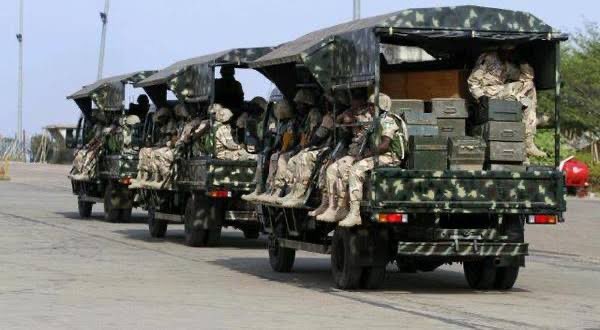Soldiers taking part in Operation FANSAN YAMMA have received training on how to deal with Post-Traumatic Stress Disorder (PTSD) and manage stress. The training is meant to help them handle the emotional and mental pressure they face during military operations.
The Defence Headquarters organized the training in Sokoto. It focused on teaching soldiers ways to cope with the mental challenges they go through during missions.
General Christopher Musa, the Chief of Defence Staff (CDS), was represented at the event by Major General Warrah Idris, who is in charge of Innovation and Concept Development at the Defence Headquarters. He said it’s important to pay attention to the mental health of soldiers.
He explained that for many years, the emotional effects of military stress were ignored. Because of this, many soldiers suffered mentally. He praised the training as a good step toward helping soldiers deal with emotional challenges they face while serving.
The CDS noted that soldiers not only face physical danger in battle but also suffer invisible wounds from stress, tiredness, and trauma due to combat.
He warned that if these mental challenges are not treated, they can harm a soldier’s well-being, lower morale, weaken team unity, and make it harder for them to adjust after leaving the military.
He added that the training fits with the military’s goal to take care of its members completely — both physically and mentally. It shows the Army’s strong commitment to mental health and emotional strength.
He also said that this training is the start of a long-term plan to raise awareness and offer mental health support in the Nigerian Army. He reminded everyone that true strength is not just about weapons or tactics, but also emotional and mental toughness.
Major General Ibikunle Ajose, the head of 8 Division and Commander of Sector 2, Operation FANSAN YAMMA, also spoke. He said the Nigerian Army has made big sacrifices in fighting terrorism and crime, which exposes soldiers to heavy emotional stress. If ignored, this stress can cause long-term psychological problems.
He explained that working at the frontlines is physically hard and mentally exhausting, so proper PTSD and stress management are very necessary.
He said the training would help soldiers learn how to manage stress, recover from trauma, and build emotional strength in high-pressure situations.
The GOC also said the training would help soldiers understand PTSD better, spot early warning signs, and learn how to cope with it effectively.
He praised the Defence Headquarters for organizing the programme, saying it shows that the Army truly cares about the complete well-being of its troops.
Finally, he encouraged the soldiers to fully take part in the training. He said the knowledge they gain is very important for both their professional duties and service to the nation.


